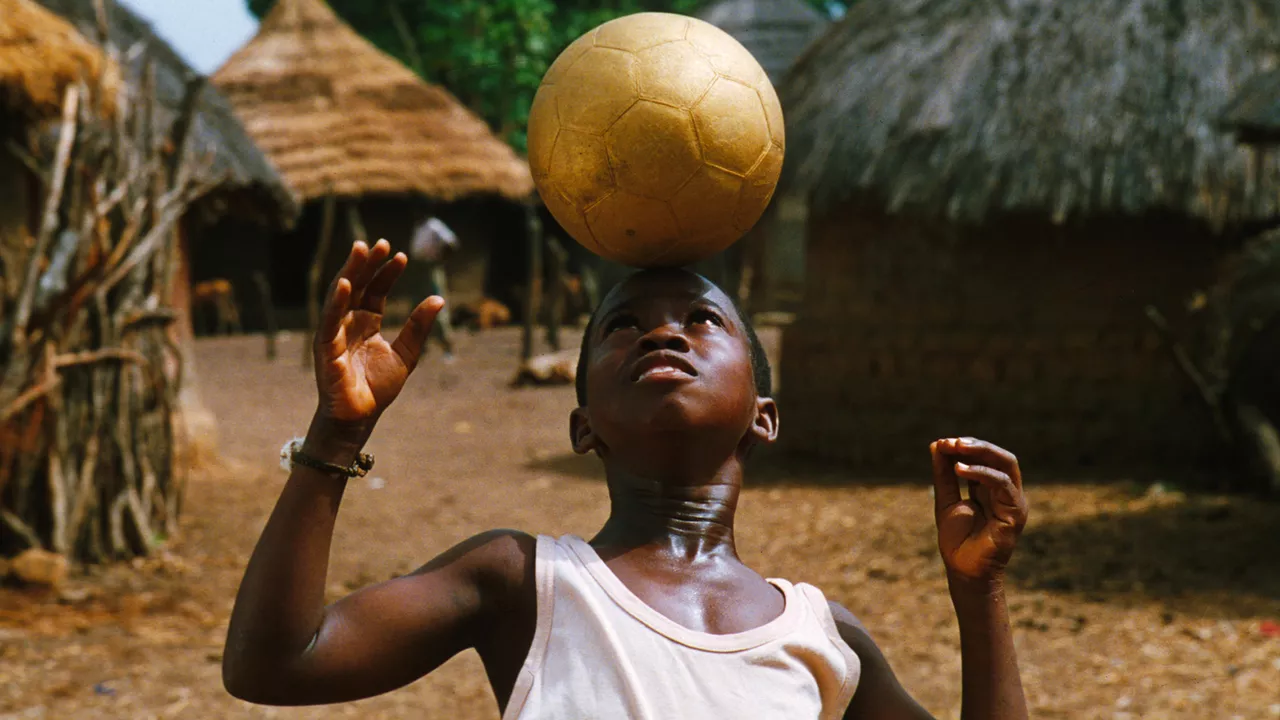
The Golden Ball
The “turbo”: this is how it is called in Makono, a small village made up of huts, lost in the middle of the forest located southwest of Nafadji and west of Finabala in Guinea.
Badian, only 12 years old and less than 1.50m tall, is a young boy passionate about football who spends most of his time playing it, bare chest and barefoot, with balls made by himself from nothing while traversing the whole village.
His dream is to one day be able to wear a jersey, and kick a real soccer ball with cleats in the middle of a crowd chanting his name everywhere. Eager to afford a ball, he begins to build up a kitty by selling dead wood. He entrusts the money he earns from his small activities to Mrs. Aspirin, Isabelle of her real name, a Western doctor, from doctors without borders, who shows him a particular affection.
This one ends up offering him a leather soccer ball to his great happiness but very quickly, he gets into trouble throughout the village to the point of being forced to leave it for having injured a notable. Direction Conakry the capital to join his big sister Fanta, whom he helps the first weeks in his work of making gifts.
In his new workplace, Badian struggles to gain respect from the other children who call him a peasant and constantly get into trouble with him. He nevertheless manages to make a friend, in the person of Bouba, a young 20-year-old dwarf who takes the talented youngster as his little brother.
One day, he smuggles Badian into a football stadium to watch a match between two professional teams. Perched on the roof of a stand with his friends, Badian recovers the match ball which was there following an action of play and rather than returning it, begins to juggle it under the dazzled gaze of the whole stadium, making a real demonstration of technicality with this ball which immediately earned him the clamor of the public, but also the dissatisfaction of the players in the match and the security forces who threw themselves in pursuit.
He is arrested and locked up, but Bashir, a rich leucoderma and football fan who had witnessed the whole scene, detected in little Badian a real talent that he intends to exploit. He breaks him out of prison and takes him to his friend Karim, a rigid football coach from Conakry renowned for training elites.
In a new environment where jealousy, competition and covetousness reign Badian manages to be respected by all thanks to his natural talent for this sport and the ease with which he plays. In his native village in Makono, he becomes a real star. When his team plays, the children of the village and his former playmates without television listen passionately to the matches on the radio.
Béchir, determined to make the child’s career a success, above all because of the gain he could reap from it, obtains a visa for him despite the opposition of his trainer Mr. Karim and Mrs. Aspirin, who consider him far too young to expatriate. Finally, Bashir manages to convince everyone and Badian begins the next stage of his tumultuous life, destination France to join the junior team of a famous Ligue 1 football club.
Directed by Cheikh Doukouré and released in 1994, Le Ballon d’Or is a 90-minute Franco-Guinean comedy-drama inspired by the career of the first African golden ball in history Salif Keïta in 1970. The young Badian embodies the trend of those years in Africa, where the youth had an unprecedented admiration for football. The director’s point of view seems unequivocal: football represents, for the most gifted, a chance to escape difficult living conditions and to access, via European clubs, a higher standard of living with, as a bonus , glory.
Two decades later the place of football has not changed in African societies, and The Golden Ball remains one of those must-see African films.


Post a comment